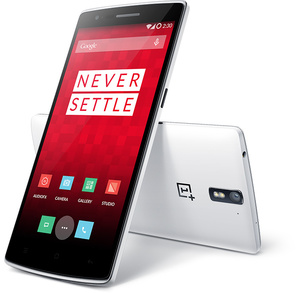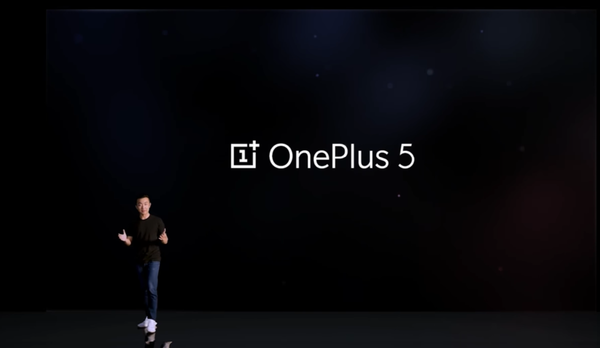
Nothing is a fascinating company with golden, likely-to-fail promises only rivaled by those of Elon Musk, a marketing ideas inspired perhaps by old Apple Inc., and an enigmatic image of a high-fashion brand.
However, to understand Nothing, and the recently announced first smartphone of theirs, we must investigate the origins of OnePlus. This isn't some sort of theoretical mathematics conundrum, instead it is a guide to the inner workings of Carl Pei's new company.
After all, OnePlus is the spiritual progenitor, albeit maybe not the direct ancestor, of Nothing Technology Limited.
OnePlus was founded in Shenzhen in 2013 among hundreds of tech startups in what were the gold rush years of Chinese technology build-up. While many of them were doomed to mediocrity, OnePlus seemed to possess something most didn't: a willingness to dream big.
The company was founded by Pete Lau, an industry veteran in hardware engineering and marketing, and Carl Pei, a relative newcomer who had a vision to offer. Carl Pei had worked a few months for the once great Finnish phone manufacturer Nokia, but the bulk of his experience came after he started working for the Chinese smartphone manufacturers.
After a short stint at Meizu, he found his way under the wing of then Oppo VP Pete Lau. There the duo drafted a plan for world domination.
 OnePlus One was an enormous success for the young start up.World domination wouldn't come easy. In fact, it wouldn't be even feasible, but the company did, nonetheless, aim to do what Chinese startups at large wouldn't even consider; Lau and Pei were determined to disrupt the global market.
OnePlus One was an enormous success for the young start up.World domination wouldn't come easy. In fact, it wouldn't be even feasible, but the company did, nonetheless, aim to do what Chinese startups at large wouldn't even consider; Lau and Pei were determined to disrupt the global market.
The first product of the company was the OnePlus One, a smartphone that would offer many of the features of the flagship phones with half the price. The "Flagship Killer" was a niché product but in the smartphone enthusiast and hobbyist circles, and media, it garnered attention way above its weight class.
The phone was a solid smartphone, and most definitely priced right at under $300, but what made it stand out was the marketing, which in some respects annoying many. In the coming years this would become more evident, as the company grew and the products became more mainstream-friendly.
No company had taken advantage of pre-release teasers like OnePlus did, and their releases always seemed to have more fanfare around them than much bigger competitors with marketing budgets that dwarfed the little startup.
Unfortunately for OnePlus, the company was the victim of its own success. The premise was flawed all along, and you couldn't make a mainstream product while retaining the enthusiasts. Being niché and mainstream at the same time is, after all, an oxymoron. World domination wouldn't be possible, and in China the competition was much more fierce.
OnePlus isn't a publicly traded company, and there's no real way of knowing how well they were, and are, doing. Especially since they are a small part of a conglomeration of Chinese technology companies, of which Oppo is one. But the public perception, especially as expressed by the media and enthusiasts, was declining considerably, perhaps as early as in the coming years after the revered OnePlus 5 was released in 2017.
In fact, in the release pitch of the OnePlus 5, Carl Pei introduced the phone's specs, which were undoubtedly competitive to say the least, as "the least interesting part of the product." This seemed to be more of a Pei's own opinion rather than OnePlus' official agenda.

Carl Pei introducing the OnePlus 5 in 2017.
The company pivoted to develop more products that were less and less unique and lacking in marketing appeal, and while Pete Lau's hardware know-how and the company's manufacturing relations in Shenzhen as well as strong carrier alliances in Europe would keep OnePlus as one of the household Android names, there wasn't much there for Carl Pei.
By October 2020, Carl Pei had left the company, and while he didn't acknowledge the reason for his departure, it seemed clear that the man would become a competitor to the company he once founded.
The last few years Carl Pei spent as the marketing lead of OnePlus seemed to amount to nothing. However, the period was undoubtedly the building blocks of Nothing. One can imagine that the frustration of not being excited about the products you present and represent as the figurehead of the company fueled the late lights he drafted the blueprints for his new upstart.
Quickly after Pei announced the new venture it was compared, rather unsurprisingly, to OnePlus as well as the likes of Essential, a defunct smartphone company founded by the original Android founder Andy Rubin. Incidentally, Nothing ended up purchasing rights to Essentials intellectual properties in early 2021.
Nothing resembles Carl Pei more than OnePlus ever did, as it should considering he is the sole founder. The focus is more on the design and marketing of the products, although Pei has stated that it's as all about accessibility of the technology.

Hardware (read: specs) aren't as important as they previously were, although with the see-through design you can see deeper in to the heart of the device. According to at least the first two products, Nothing isn't here to offer specs out of this world; there's no flagship killing involved.
One thing is for sure: Nothing has a definite uniqueness that was distinctly lacking in OnePlus during the latter half of his reign, and still does. The see-through design with lit Glyph interface on the back is eye-catching, to say the least.
This time around Pei believes that he can conquer the world, too – be a global brand. Even though OnePlus was more global than most of its local siblings, it was too focused on the Chinese market for the Swedish-grown Pei.
While being a truly recognized brand in the Western Hemisphere might be plausible for Nothing, it's doubtful that world domination in a Samsung-esque way will be achievable – and that's a good thing.
Read also: Nothing announced their debut smartphone
After all, OnePlus is the spiritual progenitor, albeit maybe not the direct ancestor, of Nothing Technology Limited.
OnePlus and Pei
OnePlus was founded in Shenzhen in 2013 among hundreds of tech startups in what were the gold rush years of Chinese technology build-up. While many of them were doomed to mediocrity, OnePlus seemed to possess something most didn't: a willingness to dream big.
The company was founded by Pete Lau, an industry veteran in hardware engineering and marketing, and Carl Pei, a relative newcomer who had a vision to offer. Carl Pei had worked a few months for the once great Finnish phone manufacturer Nokia, but the bulk of his experience came after he started working for the Chinese smartphone manufacturers.
After a short stint at Meizu, he found his way under the wing of then Oppo VP Pete Lau. There the duo drafted a plan for world domination.
 OnePlus One was an enormous success for the young start up.
OnePlus One was an enormous success for the young start up.The first product of the company was the OnePlus One, a smartphone that would offer many of the features of the flagship phones with half the price. The "Flagship Killer" was a niché product but in the smartphone enthusiast and hobbyist circles, and media, it garnered attention way above its weight class.
The phone was a solid smartphone, and most definitely priced right at under $300, but what made it stand out was the marketing, which in some respects annoying many. In the coming years this would become more evident, as the company grew and the products became more mainstream-friendly.
No company had taken advantage of pre-release teasers like OnePlus did, and their releases always seemed to have more fanfare around them than much bigger competitors with marketing budgets that dwarfed the little startup.
The decline and departure
Unfortunately for OnePlus, the company was the victim of its own success. The premise was flawed all along, and you couldn't make a mainstream product while retaining the enthusiasts. Being niché and mainstream at the same time is, after all, an oxymoron. World domination wouldn't be possible, and in China the competition was much more fierce.
OnePlus isn't a publicly traded company, and there's no real way of knowing how well they were, and are, doing. Especially since they are a small part of a conglomeration of Chinese technology companies, of which Oppo is one. But the public perception, especially as expressed by the media and enthusiasts, was declining considerably, perhaps as early as in the coming years after the revered OnePlus 5 was released in 2017.
In fact, in the release pitch of the OnePlus 5, Carl Pei introduced the phone's specs, which were undoubtedly competitive to say the least, as "the least interesting part of the product." This seemed to be more of a Pei's own opinion rather than OnePlus' official agenda.

Carl Pei introducing the OnePlus 5 in 2017.
The company pivoted to develop more products that were less and less unique and lacking in marketing appeal, and while Pete Lau's hardware know-how and the company's manufacturing relations in Shenzhen as well as strong carrier alliances in Europe would keep OnePlus as one of the household Android names, there wasn't much there for Carl Pei.
By October 2020, Carl Pei had left the company, and while he didn't acknowledge the reason for his departure, it seemed clear that the man would become a competitor to the company he once founded.
Carl Pei is Nothing
The last few years Carl Pei spent as the marketing lead of OnePlus seemed to amount to nothing. However, the period was undoubtedly the building blocks of Nothing. One can imagine that the frustration of not being excited about the products you present and represent as the figurehead of the company fueled the late lights he drafted the blueprints for his new upstart.
Quickly after Pei announced the new venture it was compared, rather unsurprisingly, to OnePlus as well as the likes of Essential, a defunct smartphone company founded by the original Android founder Andy Rubin. Incidentally, Nothing ended up purchasing rights to Essentials intellectual properties in early 2021.
Nothing resembles Carl Pei more than OnePlus ever did, as it should considering he is the sole founder. The focus is more on the design and marketing of the products, although Pei has stated that it's as all about accessibility of the technology.

Hardware (read: specs) aren't as important as they previously were, although with the see-through design you can see deeper in to the heart of the device. According to at least the first two products, Nothing isn't here to offer specs out of this world; there's no flagship killing involved.
One thing is for sure: Nothing has a definite uniqueness that was distinctly lacking in OnePlus during the latter half of his reign, and still does. The see-through design with lit Glyph interface on the back is eye-catching, to say the least.
This time around Pei believes that he can conquer the world, too – be a global brand. Even though OnePlus was more global than most of its local siblings, it was too focused on the Chinese market for the Swedish-grown Pei.
While being a truly recognized brand in the Western Hemisphere might be plausible for Nothing, it's doubtful that world domination in a Samsung-esque way will be achievable – and that's a good thing.
Read also: Nothing announced their debut smartphone











